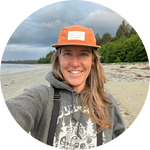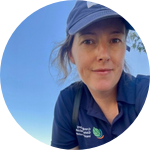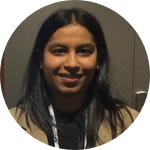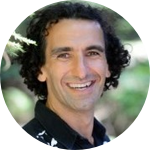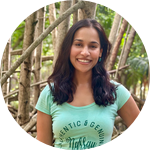About This Project
Carbon-rich mangroves are being deforested globally, but a rare project has 'successfully' conserved and restored mangroves via blue carbon credits and community efforts in the MPA of Cispatá, Colombia. This pilot study will qualitatively analyze the benefits, challenges, community perceptions and governance of this project and provide insight for designing equitable and replicable blue carbon projects that enhance community livelihoods and climate resilience by protecting coastal ecosystems.
Ask the Scientists
Join The DiscussionWhat is the context of this research?
Blue carbon credits are offered as a novel solution for mitigating climate change by restoring coastal ecosystems, however, they rarely have input from local communities. Since 2021, Vida Manglar in Cispatá Bay, Colombia, an outlier blue carbon project, is purported to be inclusive of coastal communities while conserving and restoring 7,561 ha of coastal mangrove forests, which are vital for carbon storage, biodiversity, livelihoods, and climate resilience. Colombia has the highest loss of mangroves in South America and like many countries in the Global South, faces enormous challenges in adapting to the climate crisis. Is the Vida Manglar blue carbon project succeeding in being equitable and inclusive of coastal communities and can this be replicated in other projects?
What is the significance of this project?
While blue carbon credits are funded globally as climate solutions by governments, industry, and ENGOs, there are no in-depth, qualitative studies of the impacts on coastal communities . Most mangrove blue carbon research is quantitative and conducted in resource-rich countries like the US and Australia, with immersive, qualitative research, especially in the Global South, lacking. I address this through an innovative, participatory field study to empirically observe and consult with coastal communities via mixed-methods interviews, focus groups, and surveys for a blue carbon project in Colombia. It is critical to understand whether blue carbon projects can be truly equitable and effective for climate resilience and sustainable development in coastal communities of the Global South.
What are the goals of the project?
The goal of this research is a 4-month immersive, qualitative study of coastal communities and the Vida Manglar blue carbon project. I will observe and identify key community demographics and conduct interviews, focus groups, and surveys with members directly connected to and impacted by the project such as staff, fisherfolk, lumber harvesters, and tourism operators. I will analyze this data to determine shifts in community perceptions, livelihoods, and values since the project's implementation, and its impacts on socio-economics and gender dynamics. The study will investigate and identify if specific socio-cultural factors contribute to the project's success, assess challenges, and provide actionable recommendations through academic publications, community workshops, and a NGO report.
Budget
This will be a 4-month immersive field study with coastal communities on the Caribbean coast of Colombia, where a local dialect of Spanish, Costeño, is spoken. While I speak conversational Spanish, to capture the nuances required in qualitative research, I will need to hire a local translator who is fluent in Costeño and English. I have already worked with local undergraduate students from the Universidad de Cartagena who will be my translators and I will support their training as research assistants for the duration of this fieldwork. They will learn about mangrove ecology, coastal climate adaptation, immersive qualitative methods, community consultation processes, and audio-visual data collection. Their stipend and the team’s room and board for 4 months in the rural coastal communities of San Antero and San Bernardo del Viento, next to the blue carbon project site of Vida Manglar in Marine Protected Area of Cispatá Bay, Colombia, are the largest expenses of this project.
Endorsed by
 Project Timeline
Project Timeline
This study will assess the socio-economic and cultural impacts of the uniquely ‘successful’ Vida Manglar blue carbon project 3 years after its launch in 2021 in Cispatá Bay, Colombia. The logistics will begin in late 2024 and the funds will be used from Jan-April 2025 for a 4 month field study in Colombia. Data processing, analysis, public outreach, knowledge sharing, and publications will be accomplished after the field work is completed in the rest of 2025.
Oct 07, 2024
Project Launched
Dec 15, 2024
Fieldwork Admin: secure ethics clearances, research permits, and community permissions in Colombia. Recruit local research assistant and translator for field team
Jan 10, 2025
Travel to Cispata Bay with Colombian research team
Jan 15, 2025
Connect with Colombian project partners, establish field office at the INVEMAR research station in San Antero, identify key community demigraphics
Feb 01, 2025
Data Collection: Design and begin data collection through interviews, focus groups, surveys, and participant observation
Meet the Team
Zana Mody
I'm an interdisciplinary socio-ecologist, program manager, and science communicator working at the intersections of the climate crisis, communities, and coastal ecosystems. As a citizen of both Canada and India, I speak multiple languages and have lived and worked in several remote communities in the Global South, including conducting immersive field-based research in Cambodia, Sri Lanka, India and Ghana.
In my role as a Ph.D. Candidate at the University of British Columbia in the Resources, Environment, and Sustainability department, I research blue carbon crediting programs and how communities can better mitigate and adapt to climate change by protecting and restoring coastal ecosystems such as mangroves. My Ph.D. is supervised by Dr. Simon Donner in the Climate and Coastal Ecosystems Lab and the Mangrove Lab with Dr. Dan Friess. I hold a M.A. in Anthropology and a B.Sc. in Biology and Environmental Science from Trent University, where I focused on the intersections of climate policy, ecosystem sciences, and community-based conservation. As a Liu Scholar and a Public Scholar at UBC, I aim to connect the outcomes of my research on tangible and publicly oriented policy and development initiatives.
My previous work experiences included working as producer and journalist at CBC Radio in Toronto, and as the manager and developer of the Ocean Pathways program with the conservation non-profit Ocean Wise in Vancouver. Through my academic and professional experiences, I've honed a skillset in qualitative methods including conducting interviews, cross-cultural communication, literature analysis, grounded observations, and comparative case studies.
Lab Notes
Nothing posted yet.
Project Backers
- 9Backers
- 114%Funded
- $9,198Total Donations
- $1,022.00Average Donation
